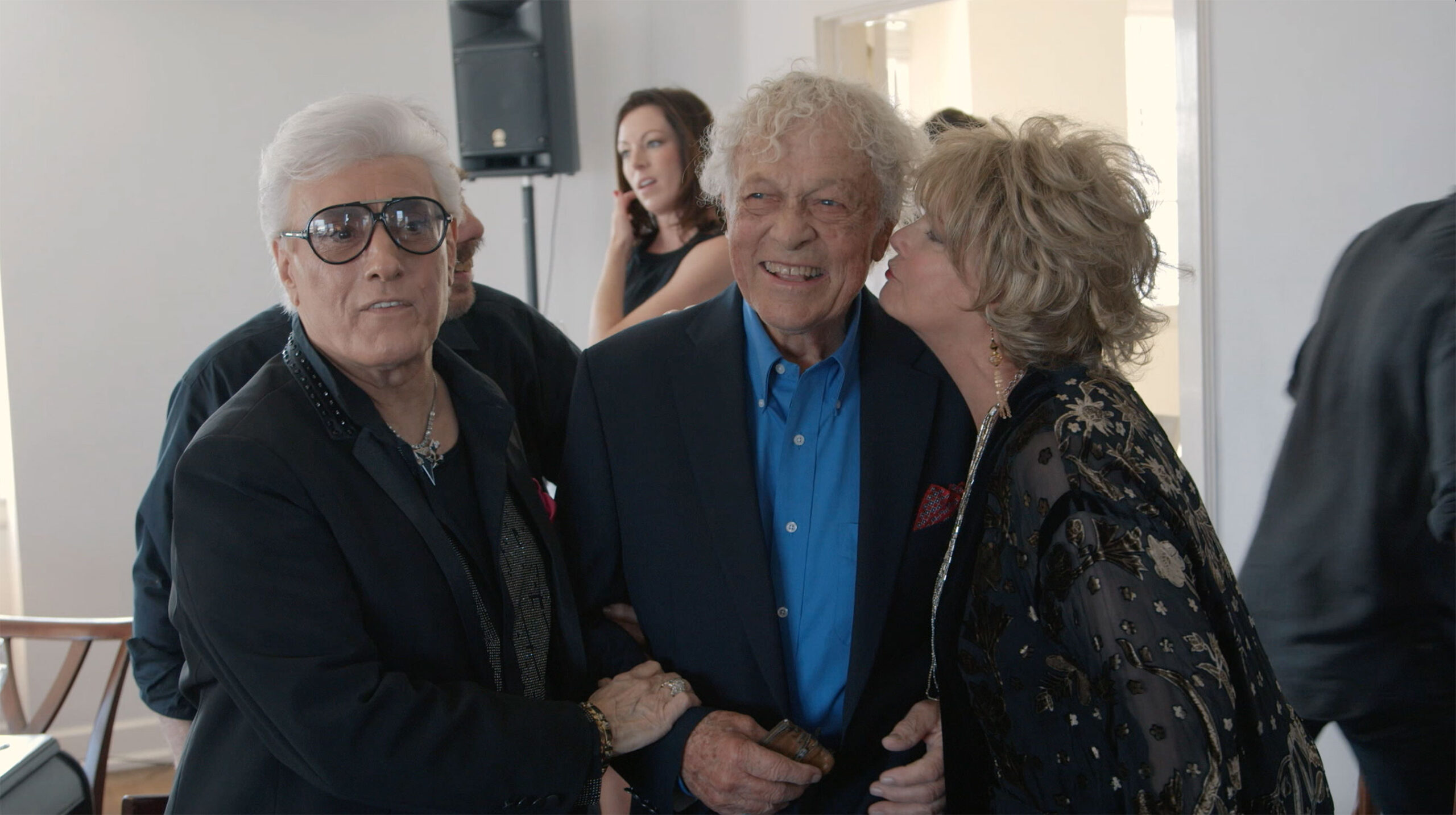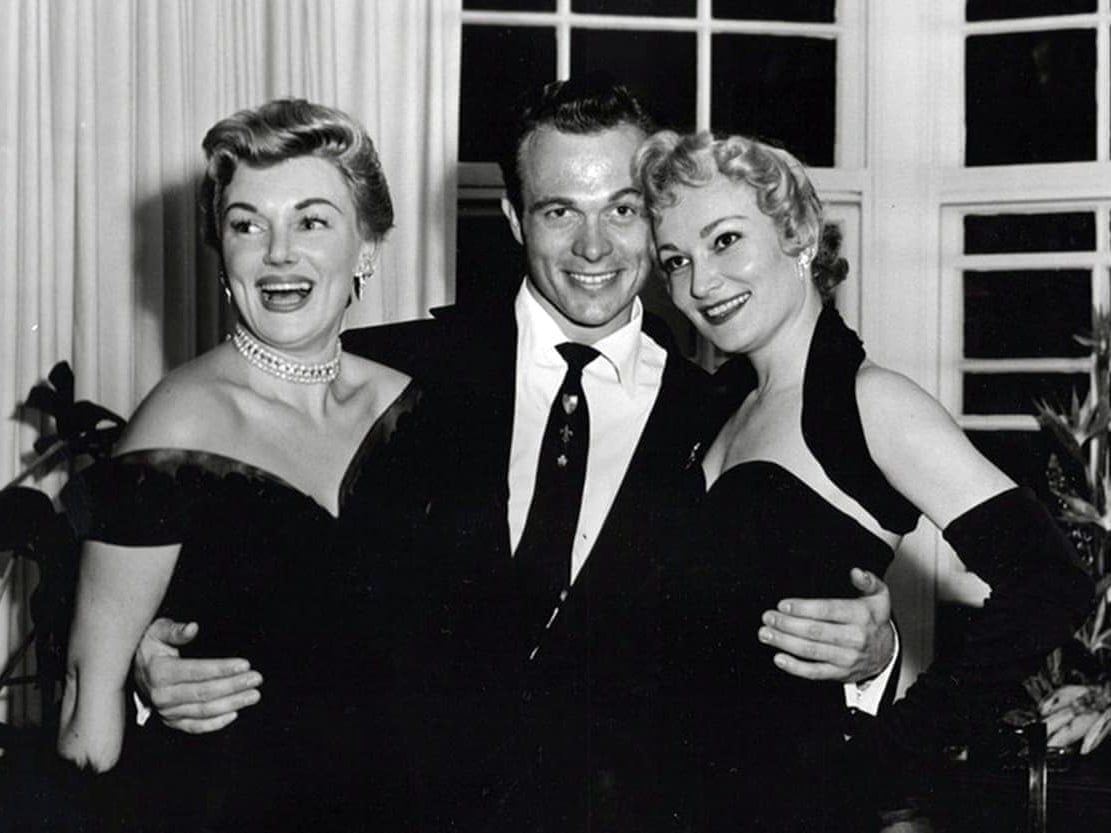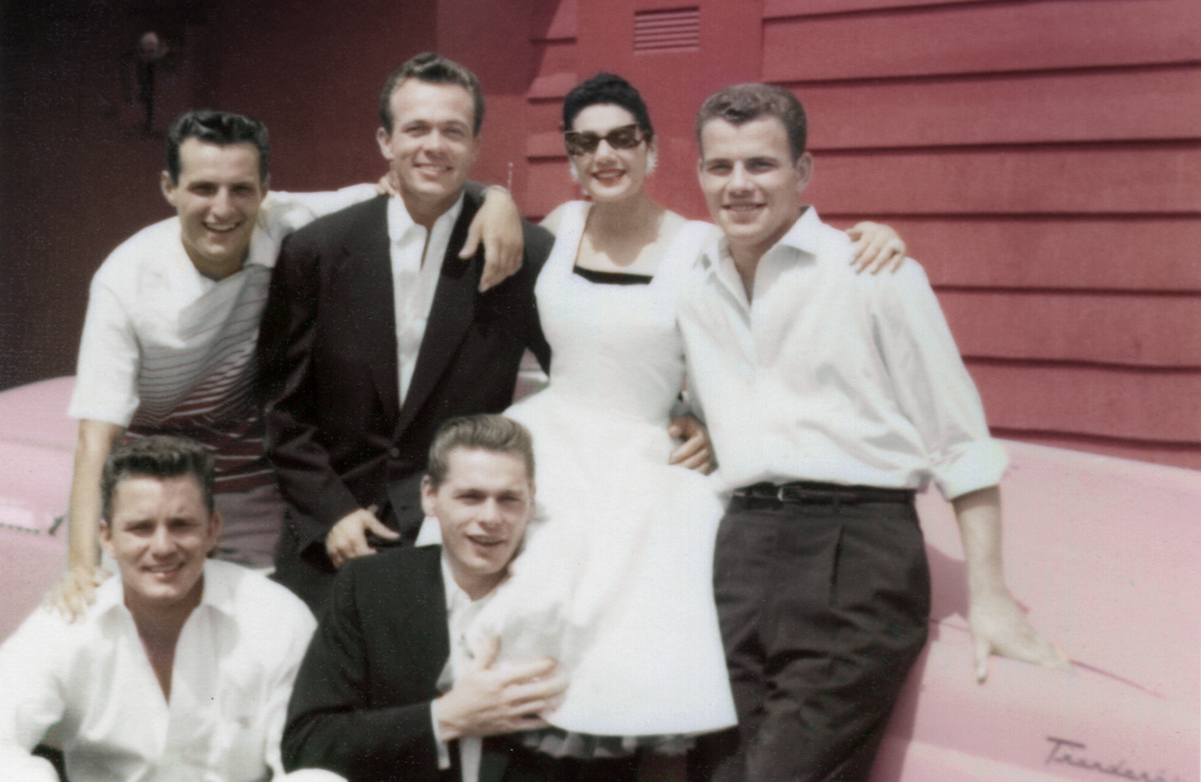Hello, dear Unicorn readers! Today I have a very special treat.
Sometimes in life I come across a book review that sounds fascinating, then totally forget it until a few years later when I come across it again. Such was the case with Full Service, a tell-all autobiography about a bi hustler named Scotty Bowers who worked with the closeted community during Hollywood’s Golden Age. I also read about the potential backlash on Bowers’ tale, claiming that outing many of the actors of the 1940s and 1950s, posthumously, was questionable — and hard to corroborate their story. Then I quickly forgot about it.
Cut to a few days ago, when a friend of mine told me there was a documentary, focusing on Bowers, called Scotty and the Secret History of Hollywood. He sent me the trailer. Would I like to go?
Oh, I was in. And I thought it would make for a great Unicorn Scale review.
Scotty focuses on the curly-haired, charismatic Scotty Bowers, a WWII Marine who moved to Hollywood, began work at a gas station on Hollywood Boulevard, and essentially fell into hustling himself and becoming a fixer to the stars of Hollywood for same-sex encounters, or “tricking” as he likes to call it.
A few warnings before I dive in: this review needs a content/trigger warning: child abuse and sexual assault. Also, I will need to give some story details to describe and review Scotty’s story, so… spoiler alert. And finally, if you need a reminder of what the Unicorn Scale metric is all about, you can check out where it all began here. You can also find our entry of this documentary in our new Bi Media section.
Moving right along…
Scotty hustled friends from the Richfield gas station he manned, not too long after getting picked up by an older movie star (Walter Pidgeon) for his own same-sex adventure. He made it clear to his friends what they were getting into when they stepped into the stars’ coupes to drive off to lurid adventures, but he never took any money off the top. Scotty just arranged the encounters — including his own — and made sure money changed hands directly between trick and customer. Scotty’s station quickly became known in the queer circles around town, and the gay, lesbian, and bi artists who needed to be discreet (due to “morals clauses” in their studio contracts) flocked to his makeshift business.
But Scotty did more than arrange these lurid encounters. He became a focal point of the Kinsey papers, helping bring same-sex and bi encounters to the forefront of American culture in a pre-Stonewall era when being gay was verboten.
While the documentary spills all the tea on queer-but-hidden Hollywood, the narrative catches up with where Scotty is today and fills in other parts of his life. This includes unsavory sections where Scotty casually talks about his molestation as a child from neighbors and priests. Scotty also discusses his time in WWII as a Marine paratrooper, including the battle of Iwo Jima. We get an idea of how the nonagenarian fills his days, from maintaining and whittling down the “goodies” that fill his houses to what he will do with his dear friend’s/lover’s ashes.

What I Liked:
I adored the ease and lack of shame Scotty talks about the orientation of his friends, clients, and himself. There’s a total lack of pretension in how he discusses sex and all its implications, which contains a kind of Zen breeziness in direct opposition to typical American puritanical sensibilities. And considering that all parties were consenting adults in his business — right down to those on both sides of a peephole he drilled in his gas station bathroom — it’s a surprisingly sex-positive/sex-worker positive enterprise that was light years ahead of its time. He even often adhered to modern consent procedures, including making sure his tricks got full sexual agency in their business.
I also appreciated the tone Scotty and the director took towards his whole life, beyond the sections about his turns as a hustler and gigolo. Scotty is shown as a whole person, possessing both charm and sometimes callousness. This treatment spans the timeline from his visionary queer acceptance as well as his deep flaws (hoarding toilets and rolling pins is difficult to dismiss). These dimensions make the whole affair feel less like a tell-all and more like a true portrait, still streamlined and breezily paced but wide in the scope of the subject’s life.
While we get a lot of juicy anecdotes about the sexual side of these stars’ lives, Scotty calls up the memories as one would about a dear departed friend, with the same loving treatment. Most of the families of the actors mentioned don’t seem to kick up any fuss about the orientation of their relatives being exposed — only the pearl-clutchers of today’s culture.
Not only that, but Scotty has zero problems talking about his own bi escapades. And he easily uses the term “bisexual” to describe the encounters of his tricks, clients and customers. It almost feels revolutionary, considering how this was all before the modern gay rights movement and how easily Scotty worked in and moved around in that world. There are honestly too many bi players in this story to even name them — a breath of fresh air in modern media that often barely gets past its habit of #killyourgays.
But as to whether it’s morally right to “out” his friends after their deaths? My hot take: I am grateful this side of their stories is finally getting told. Scotty waited until just about everyone passed away, his work was consensual, and he helped people express themselves in a culture that denied them their desires and carnal needs. If it can’t hurt their voice or privacy anymore but instead give cultural insight to that moment in history, it doesn’t bother me one bit. It brings no shame to their legacy to reveal their predilections. Not only that, the orientations of the actors mentioned — Rock Hudson chief among them — were an open secret in Hollywood. They just never got attached to their public personas the studio labored to create due to the morality clauses.

Also, I mean… come on. Scotty held onto his friends’ secrets for over sixty years — I think he earned the right to tell his tale, however salacious some pockets of the morality police may find it.
What I Didn’t Like:
After all was said and done, and with how freely he discussed the bi goings-on in his world, I was surprised Scotty did not describe himself as bi. He clearly did not have a problem with the label except for self-labeling, even though his attractions and behaviors dictated otherwise. He doesn’t come across as entirely gay-for-pay, but again transcends labels with how he views his own past. The most Scotty would say is that he was “open to anything”. But considering his line of logic and his lack of sexual boundaries in other areas, it almost makes sense to me he would not embrace the label. Almost.
As much as I enjoyed learning about many of the dealings Scotty arranged for his clients, it was hard to absorb the lightness with which he treats setting up extramarital affairs — and his part in cuckolding husbands and wives. These passages are harder to process with modern ideas on boundaries, whether looking through traditional monogamous or poly consent structures.
Also — and this is why I wrote a trigger warning — it’s especially difficult to hear Scotty describe the sexual abuse he experienced (and enjoyed?!) as a child at the hands of family-friends and priests. He seems to take a bemused approach to the developments and doesn’t seem to be traumatized by the affairs. But boy, did the reminder of the epidemic of sexual child abuse of the time make me queasy. I know Scotty did most of these transgressions to either make someone happy or earn a few precious pennies during the Depression, but his shrugging off of the abuse almost leaves me wondering if he felt it was okay for other children to experience the same trauma?
I’m still processing my feelings on this section of the documentary. I may have to consider the idea Scotty had a tiny sexual latency period compared to other children. Perhaps there are considerations for teenage sexual agency at play in Scotty’s story, as the Coquette tries to explain in her breakdown of Bowie’s groupie sexcapades. This is not to say in any way I condone what happened to Scotty, nor am I an apologist. I condemn what happened to him, even if he does not. But I leave other audience members to parse out their own feelings about these passages of Scotty’s tale.
The Rating:
Scotty’s story is a rare and vital firsthand insight into the closeted Golden Age of Hollywood, a community whose hand was forced to forge a squeaky clean image in spite of its own yearnings. Scotty and his gas station provided a much-needed relief to that mask, and I’m grateful he provided services and support in a time when bi America was banished to the shadows.

Even though I harbor some hesitations, I fully recommend seeing Scotty’s story. And I hope people will take in his story while he is still around to tell it. Keep up with news about screenings on the Facebook page or on the Twitter page.
It’s worth the trip, baby.
